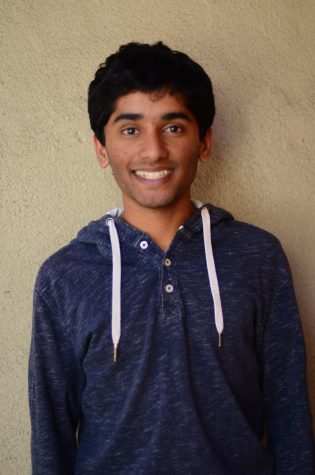Face of the people: Radical populism rises to the forefront of national politics

December 7, 2018
Some of the world’s largest democracies are being led by currently conservatives from Italy, with Deputy Prime Minister Matteo Salvini, to India, with Prime Minister Narendra Modi, to the United Kingdom, given the conservative support for the Brexit decision.
Yet there is a movement sweeping the globe that is not simply based on the strength of policymakers with conservative-leaning views. Instead, this global sensation is marked by a distinctly new style of politics which happens to be employed via the far-right platform: radical populism and nationalism, as seen in Italy’s Salvini, Greece’s Golden Dawn, and even President Trump.
“The contest between liberalism and conservatism within a democratic framework is a healthy give and take, so [instead] what seems to be raising [a] question is the specter of authoritarianism, which is even beyond conservatism,” upper school history teacher Byron Stevens said. “It’s a radical populism, that gives rise to potentially a dictatorship or authoritarians, and that can come from the right or the left.”
Oct. 28 2018 saw another far-right candidate win the election in Latin America’s largest country – Brazil. The win of Jair Bolsonaro, a former army captain, is another victory in the wave of resurgence across the globe of conservative candidates sweeping into power.
Bolsonaro won the election with 58 million votes by promising to overhaul the Brazilian economy under recession which is burdened with high unemployment rates, corruption, and high crime rates.
Also known as the “Trump of the Tropics,” Bolsonaro is a vocal supporter of President Trump and some of the similarities between the two are strikingly evident. Bolsonaro, like Trump, is a man of controversy, advocating radical change and openly insulting gays, women, and blacks. He openly favors investment in military and relaxed gun laws, he is against environmental protection and abortion policies, and he is an open critic of LGBTQ communities.
Two of the main social markers that give rise to far-right policies are popular insecurity and frustration with the current system and who it privileges over others.
“I think it happens because of insecurity: people are nervous for a variety of reasons, … they want a solution that addresses their nervousness or their sense of [distress] about the future,” Stevens said. “People [also] like to win, and if they feel like they are not winning anymore, they want somebody to blame or they want to choose leaders that will get behind ideas they think that will restore them to a state of winning.”
Specific manifestations of these fears include fears of immigrants, frustrations with failing economies, and scapegoating, reflecting a hatred of the other, whether it be the Jews, Muslims, the LGBTQ community, or other minorities.
This sort of populism, a radical extension of conservatism, is rising all over the world, especially in Europe and in Asia. With it comes rampant polarization and division, as the threat of isolationism and ethnic divide increases.
AP Government and Modern International Affairs student Kelly Shen (12) shared her concerns on the rise of radical populism as a deep threat to democracy.
“I definitely think that the increasing authoritarian populism in Europe especially as well as in the US and Brazil is very problematic because these authoritarian leaders often times do not act in the interests of everyone and instead act on their own volition,” she said. “There is lot of xenophobia, there is very little popular say in what happens and increasing negative sentiment.”
This piece was originally published in the pages of The Winged Post on December 6, 2018.


















![“[Building nerf blasters] became this outlet of creativity for me that hasn't been matched by anything else. The process [of] making a build complete to your desire is such a painstakingly difficult process, but I've had to learn from [the skills needed from] soldering to proper painting. There's so many different options for everything, if you think about it, it exists. The best part is [that] if it doesn't exist, you can build it yourself," Ishaan Parate said.](https://harkeraquila.com/wp-content/uploads/2022/08/DSC_8149-900x604.jpg)




![“When I came into high school, I was ready to be a follower. But DECA was a game changer for me. It helped me overcome my fear of public speaking, and it's played such a major role in who I've become today. To be able to successfully lead a chapter of 150 students, an officer team and be one of the upperclassmen I once really admired is something I'm [really] proud of,” Anvitha Tummala ('21) said.](https://harkeraquila.com/wp-content/uploads/2021/07/Screen-Shot-2021-07-25-at-9.50.05-AM-900x594.png)







![“I think getting up in the morning and having a sense of purpose [is exciting]. I think without a certain amount of drive, life is kind of obsolete and mundane, and I think having that every single day is what makes each day unique and kind of makes life exciting,” Neymika Jain (12) said.](https://harkeraquila.com/wp-content/uploads/2017/06/Screen-Shot-2017-06-03-at-4.54.16-PM.png)








![“My slogan is ‘slow feet, don’t eat, and I’m hungry.’ You need to run fast to get where you are–you aren't going to get those championships if you aren't fast,” Angel Cervantes (12) said. “I want to do well in school on my tests and in track and win championships for my team. I live by that, [and] I can do that anywhere: in the classroom or on the field.”](https://harkeraquila.com/wp-content/uploads/2018/06/DSC5146-900x601.jpg)
![“[Volleyball has] taught me how to fall correctly, and another thing it taught is that you don’t have to be the best at something to be good at it. If you just hit the ball in a smart way, then it still scores points and you’re good at it. You could be a background player and still make a much bigger impact on the team than you would think,” Anya Gert (’20) said.](https://harkeraquila.com/wp-content/uploads/2020/06/AnnaGert_JinTuan_HoHPhotoEdited-600x900.jpeg)

![“I'm not nearly there yet, but [my confidence has] definitely been getting better since I was pretty shy and timid coming into Harker my freshman year. I know that there's a lot of people that are really confident in what they do, and I really admire them. Everyone's so driven and that has really pushed me to kind of try to find my own place in high school and be more confident,” Alyssa Huang (’20) said.](https://harkeraquila.com/wp-content/uploads/2020/06/AlyssaHuang_EmilyChen_HoHPhoto-900x749.jpeg)







